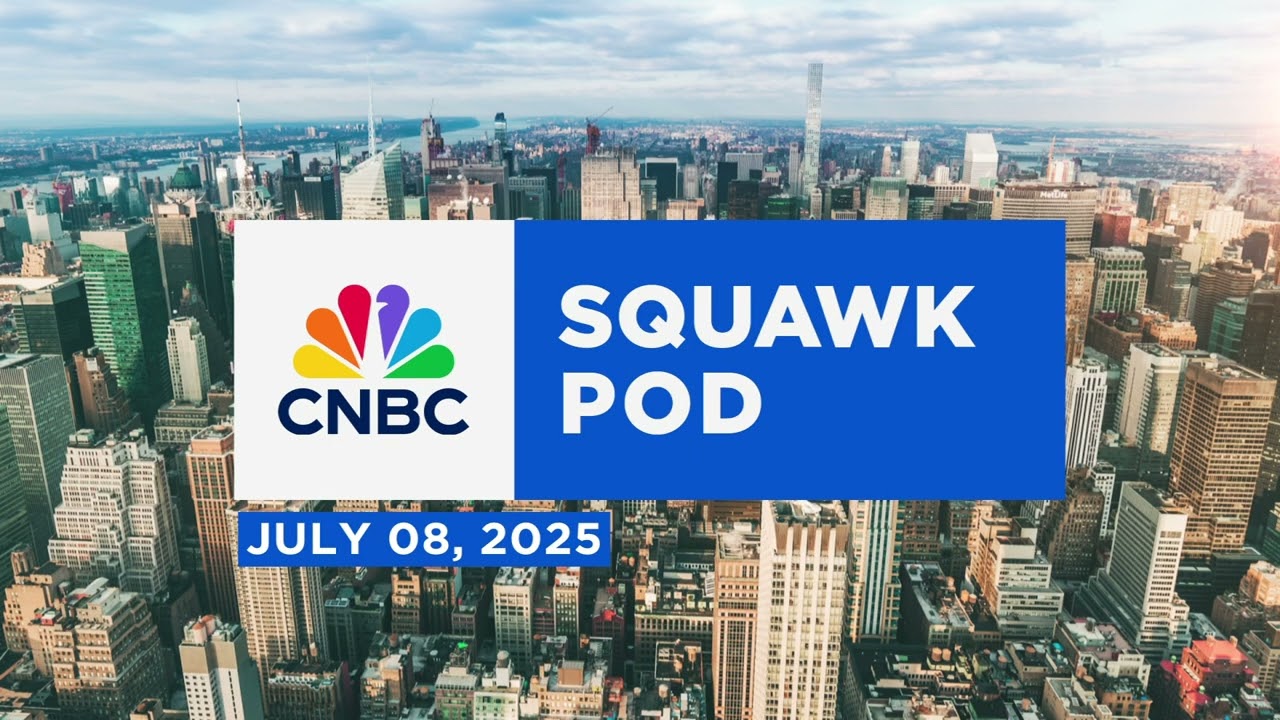The latest Squawk Pod episode discusses President Trump’s delayed tariffs on imports from 14 countries as part of a broader trade strategy, the TSA’s quiet rollback of the shoe removal policy, and the fierce competition for top AI talent in Silicon Valley with massive pay packages. It also covers Amazon’s expanded Prime Day amid pricing challenges and features insights on the geopolitical and economic risks of tariffs, including strained alliances and potential shifts in global trade dynamics.
The latest episode of Squawk Pod covers several key topics, starting with President Trump’s decision to delay the implementation of reciprocal tariffs on imports from 14 countries until August 1st, 2025. Megan Cassella reports that while the tariffs range from 25% to 40%, the delay provides additional time for negotiations, with some countries like Japan and South Korea holding firm against concessions. The tariffs are part of a broader strategy by the Trump administration to push for better trade deals, increase manufacturing in the U.S., generate revenue, and use tariffs as a form of economic punishment. However, the market reaction has been cautious, reflecting uncertainty about the long-term impact on growth and inflation.
In travel news, the Transportation Security Administration (TSA) has quietly begun rolling back its long-standing shoe removal policy at some airports, including New York’s LaGuardia. This change could reduce the value of the TSA Pre-Check program, which allows travelers to keep their shoes on during screening for a fee. The shoe removal rule has been in place since 2006 following a failed shoe bomb attempt, and the rollback signals a shift in security protocols, though the TSA has not officially confirmed the policy change.
The episode also highlights the ongoing battle for top artificial intelligence (AI) talent in Silicon Valley. Meta has recently poached a leading AI engineer from Apple, offering lucrative pay packages reportedly worth tens of millions of dollars annually, with some offers reaching up to $300 million including bonuses and equity. Wired’s Lauren Good explains that this intense competition is focused on a highly specialized group of AI researchers working on generative AI and superintelligence. While these high salaries may not disrupt the broader engineering pay scale, they underscore the critical importance of talent, data, and computing power in the AI race.
Amazon’s Prime Day event is another major topic, with CNBC’s Courtney Reagan discussing the complexities of pricing and discounts amid the backdrop of tariffs and inflation. Although Amazon claims prices have not risen significantly due to tariffs, independent analyses show mixed results, with some categories experiencing price increases. The event has expanded to four days this year, and while Amazon dominates online sales during this period, competitors like Target and Walmart are also aggressively matching deals. Retailers face challenges in managing inventory and pricing strategies to attract customers without eroding margins.
Finally, Fred Kemp, CEO of the Atlantic Council, provides insight into the geopolitical and economic implications of the tariff strategy. He argues that tariffs are being used not just as negotiation tools but also for broader economic and political objectives, including reshoring manufacturing and punishing countries for various reasons. Kemp notes that while the markets have yet to fully price in the potential negative impacts, the tariffs could strain relations with key allies like Japan and South Korea and accelerate moves toward de-dollarization in global trade. Despite these risks, Kemp sees the current moment as a critical juncture with significant long-term consequences for global trade and economic trust.
